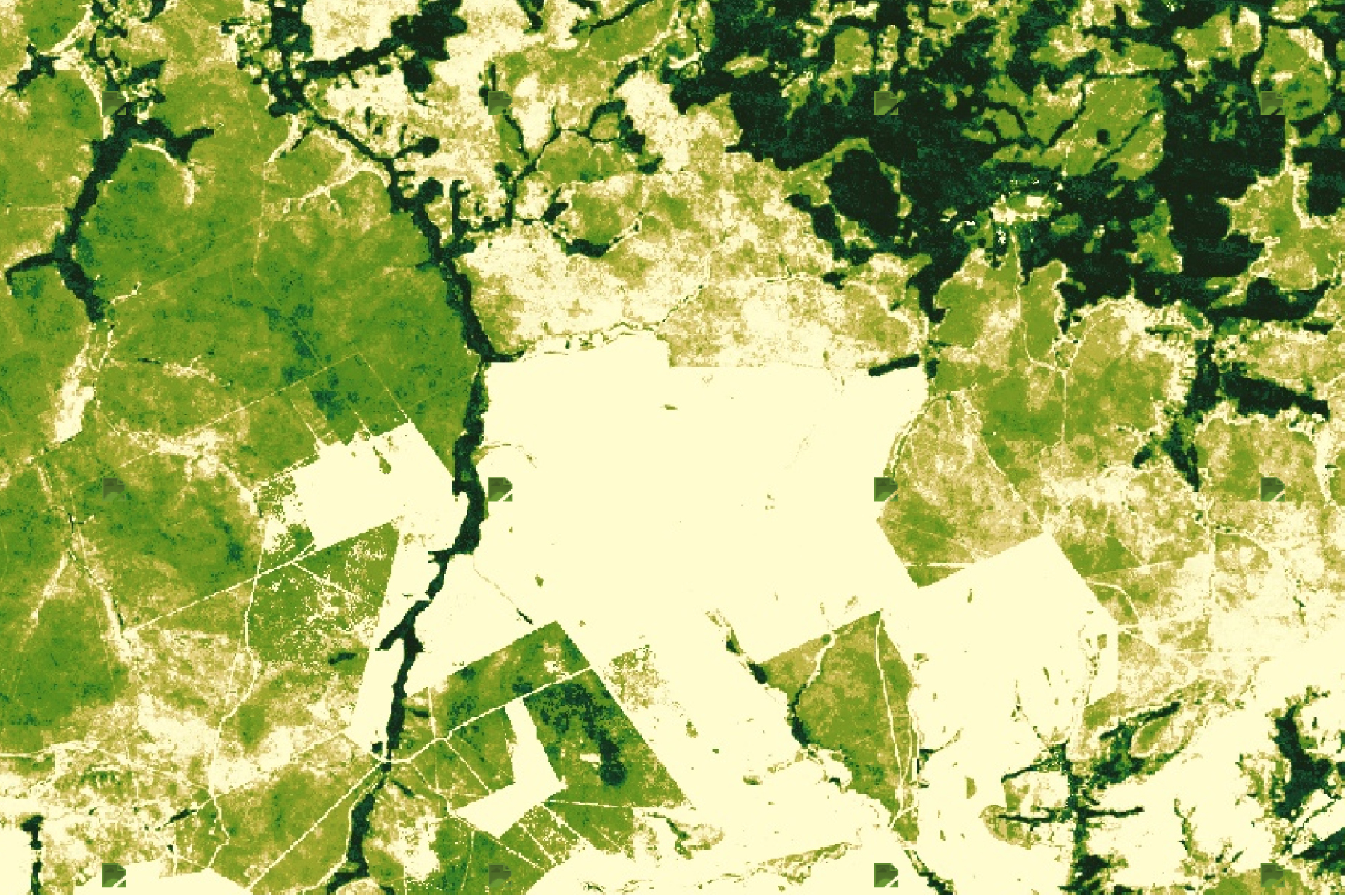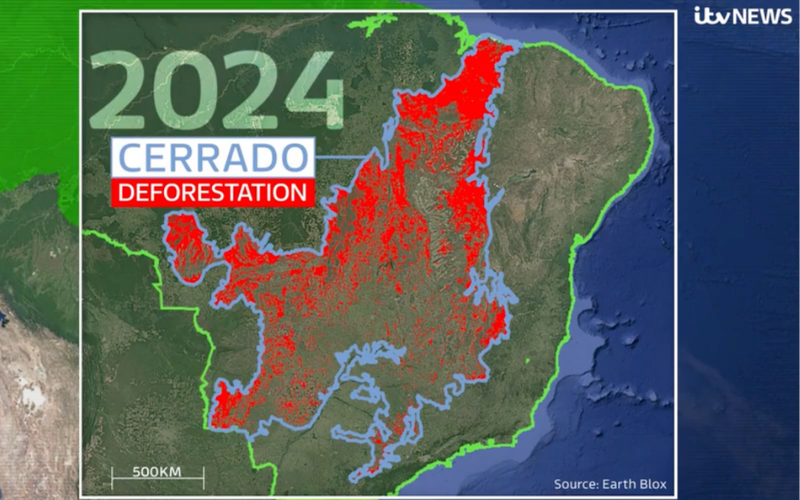Last week in our ‘Meet the experts behind Earth Blox’ series, we talked with Earth Blox co-founder and Head of Customer Success, Sam Fleming. In this post, we talk to Dr Steven Owens, Operations and Business Insights Specialist at Earth Blox.
In this series we talk to the people building the no-code Earth observation software-as-a-service (SaaS) that helps teams get rapid insights from satellite data, freeing up their time to focus on the big picture. We learn about their wealth of experience in remote sensing, Earth observation, carbon science, technology, and startups, as well as what drives them to build a product that is making a positive impact on the planet and people.
How and when did you become interested in Earth observation?
My interest in Earth observation was founded primarily on an interest in space - the Earth observation piece came after. I was ten years old when I saw the space shuttle launch from Kennedy Space Centre in 1996, which also launched an interest in space that stuck with me throughout my life.
I studied an integrated master's degree in Aero-mechanical engineering, which was a combination of aeronautical and mechanical engineering, providing my first taste of space-related engineering. After that, I went on to study for a PhD in astrodynamics. I’m now really interested in the data that comes from space and how this can be used on Earth. I used this to develop the idea for my start-up company, Huli, an app which uses Earth observation data to create personalised cycling routes, and I eventually found myself here at Earth Blox.
Tell us about your qualifications and experience.
I completed my integrated master's degree at the University of Strathclyde in Glasgow and, after a year out, returned to study for a PhD where I focussed on hybrid propulsion trajectory design for spacecraft (e.g. Analogy to Bi-Elliptic Transfers Incorporating High- and Low-Thrust | Journal of Guidance, Control, and Dynamics ) - or simply how to move items around in space! Around this time the Scottish space sector was taking off with the likes of AAC Clyde Space and Spire Global gaining momentum in Glasgow, coupled with leading space research in both Glasgow and Edinburgh. I was fortunate to be taught by some of the country’s best. My PhD supervisor, Prof Malcolm Macdonald, has been described as "Scotland's leading space expert” and formerly sat on the board of the UK Space Agency and inputs into one of the biggest space venture funds as an industry advisor .
After I graduated, I worked for an engineering consultancy. I was still figuring out which direction to pursue a career in and this was a good position that allowed me to explore different industries. I was responsible for the designing of engineering systems across the aerospace, marine and nuclear industry sectors, and was also involved in the company’s space industry business campaign, where I really started to push the importance of space data and just how much potential it has. During my spare time, I began to play with Earth observation and location data. I started entering business competitions funded by the European Union Copernicus Programme, combining an interest in outdoor sports and space to come up with ideas, such as using different technologies to monitor avalanches. I even got through to the finals a few times!
I really wanted to pursue this interest in space and my newfound passion for satellite data, so I spent the next six years back at the University of Strathclyde growing the Scottish space sector, working on all sorts of interesting projects with industry. As an example, we developed a very early monitoring system for offshore wind turbines using satellite data to improve efficiency and monitor weather conditions to improve access for maintenance.
What’s your role at Earth Blox and how did you get involved?
I met Sam Fleming, one of the founders of Earth Blox, at several networking events. I wanted to use the entrepreneurial skills I’d learned from building Huli, coupled with space data expertise, to move into the startup world and help tackle the climate emergency. It was great to see Earth Blox focussing on widening access to Earth observation data, alongside demonstrating commercial value, as I believe this is critical for widespread adoption across different industries.
What project or experience are you particularly proud of?

Working at Strathclyde with satellite data was where the idea for Huli, my startup, came from. We wanted to look at how space data could be used in the fitness sector and how it can improve the ease of access for cyclists to meet their training goals. Huli saves cyclists time by using Earth observation data combined with algorithms to create personalised cycling routes. There wasn’t really an app that did that well at the time, so building Huli and getting it on the app store is something I’m really proud of. I learned a lot about being an entrepreneur, including how to grow from mistakes. I also started to become interested in company growth, which gives me a really good understanding of how to grow Earth Blox as a company.
I’ve also worked on a lot of silly projects, such as launching a red nose into space in aid of Comic Relief. During my PhD, I got the chance to be on SafeBreakers, a TV game show which used our team’s mechanical engineering skills to try and obtain and crack into a safe.
What does your work at Earth Blox involve? What does a typical day look like for you?
My role is very data-focussed, utilising metrics from the company to make strategic growth decisions. It’s an operational role, so I have to be quick-thinking to identify and resolve issues as quickly as possible. My experience with Huli has given me previous startup experience - as well as making decisions on a daily basis, I love to ask the big strategic questions and encourage discussions for innovation.
A typical day for me involves a lot of data - pulling from sales, product, and marketing, and trying to make sense of it from a growth point of view! I also look after our strategic partnerships with Google Cloud, specifically Earth Engine, so that we continue to be at the forefront of Earth observation.
Why is building Earth Blox important to you?

I’ve always believed strongly in sustainability and how we, as individuals, can be better. I try to make sustainable lifestyle choices, such as cycling instead of driving. But making these choices can often be challenging due to a lack of information. Not everyone has the data to back up a decision, for example, is it better to buy dairy milk from the UK or almond milk imported from abroad? I’m fascinated by data and how this can be used to improve information accessibility which will help individuals and businesses to make more sustainable choices.
How do you think Earth observation technology will evolve in the next 5-10 years?
Earth observation data has still not experienced widespread commercial adoption, but I think it will follow a similar path as satellite navigation technology like GPS,, which was launched in the late 1970s. GPS satellites were initially created as a military location service, but it took until the 2000s and the invention of modern phone technology for GPS to achieve widespread commercial adoption. Now, so much of our lives revolve around GPS technology, from using Google Maps, to taking an Uber. Similarly, I think we will start to see a lot more applications using Earth observation data in the next decade. Eventually it will become an integral part of our lives.


.png)
